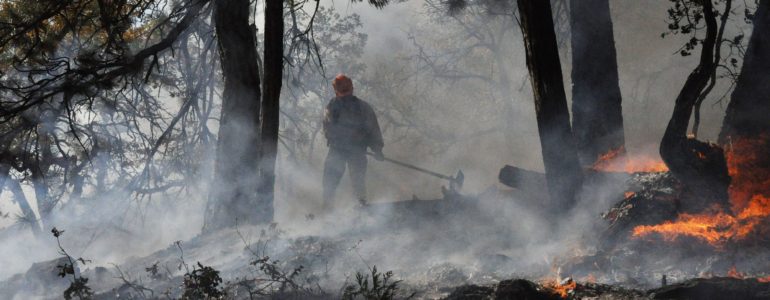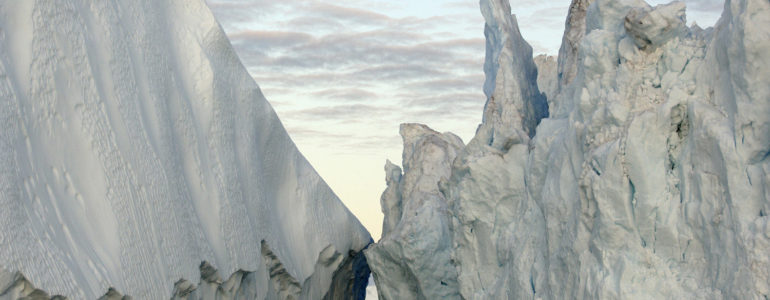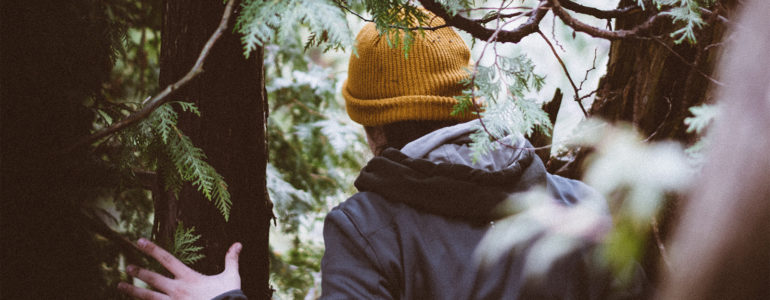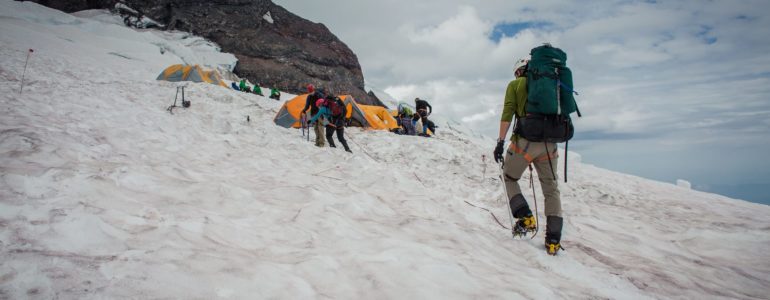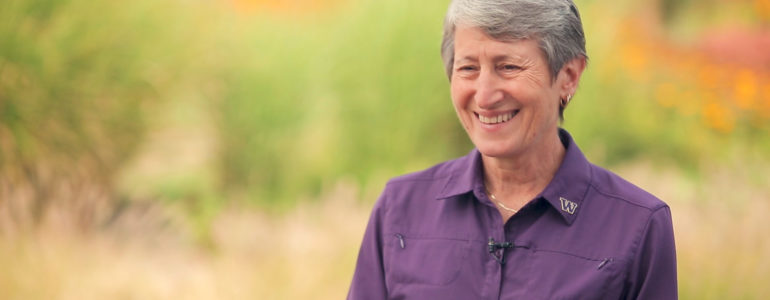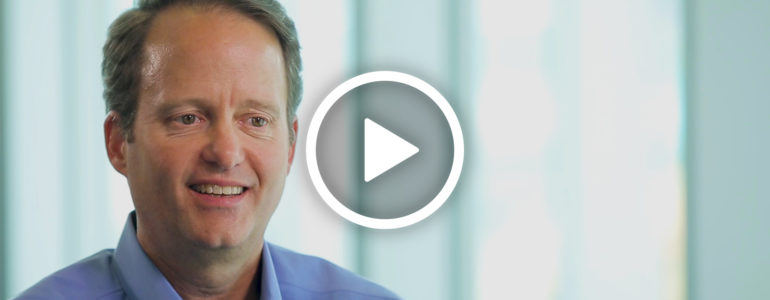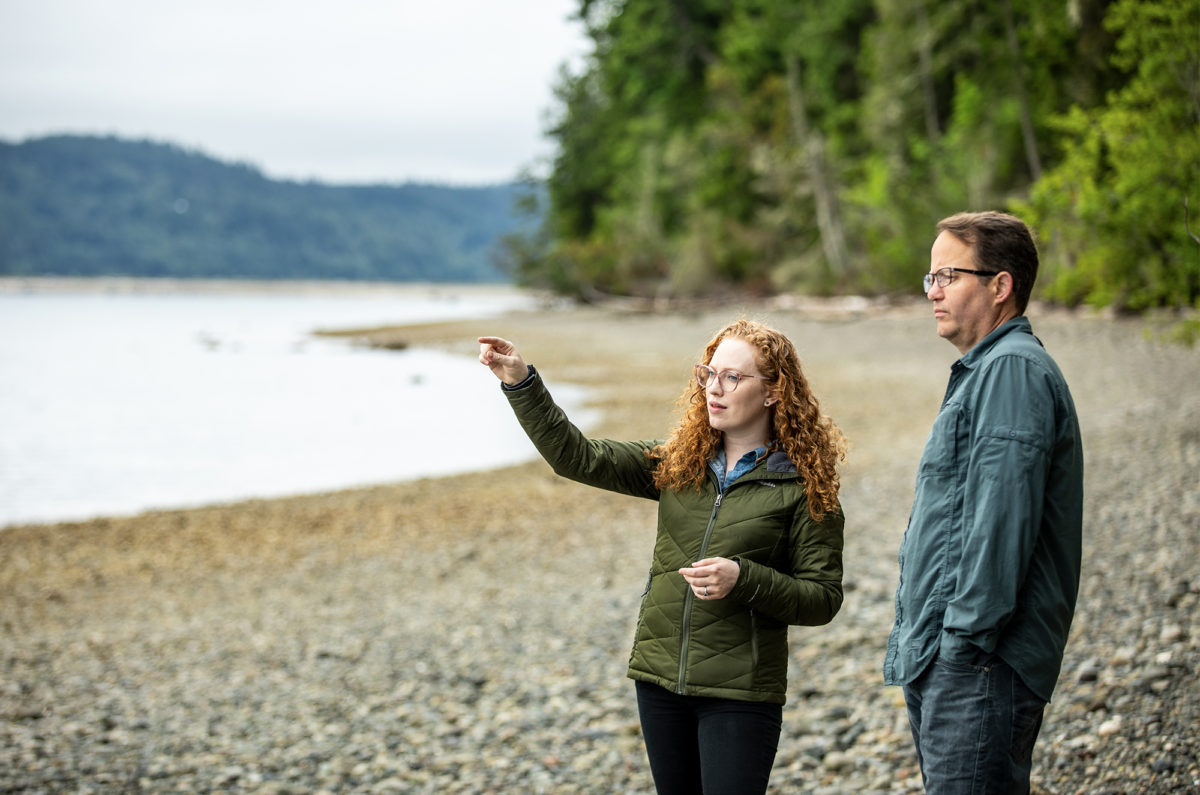EarthLab News
New resources support tribes in preparing for climate change
Which Pacific Northwest streams will warm the most in the next 50 years, and where would restoration work make a difference for salmon? Where will wildfires and pests be most aggressive in forests as the Earth warms, and how can better management help?
As the natural world responds to climate change, American Indian tribes across the country are grappling with how to plan for a future that balances inevitable change with protecting the resources vital to their cultural traditions.
Anthropocene Film Salon
Join EarthLab and the Simpson Center for the Humanities for a screening of Chasing Ice, the first in our Anthropocene Film Salon series. After viewing this provocative film, we will host a discussion and social gathering in hopes of connecting people from the humanities, arts, and the physical and social sciences who would not otherwise meet. Our goal is to foster mutual learning and catalyze new, cross-cutting collaborations addressing the unique social-ecological challenges of the Anthropocene.
Read moreA dose of nature: New UW initiative to spearhead research on health benefits of time outside
Time spent in nature can reduce anxiety and help you sleep better at night, experts have found. It also offers promising benefits for a range of health issues, including cardiovascular disease, depression and obesity.
But there are still many questions about how time in nature can help with these health conditions, and others. A new University of Washington initiative announced this week seeks to advance research on these questions, connecting academic researchers with pediatricians, childcare providers, mental health practitioners and others who work with various populations on critical health issues.
Can hiking help heal veterans with PTSD? Researchers seek to find out
One fall day on Washington’s Mount Rainier, Josh Brandon and a group of fellow active duty platoon leaders discovered something about the outdoors that could improve the lives of veterans.
It was September 2009 and the group had decided to make a late-season summit attempt of Washington’s highest peak as part of a team-building exercise. The platoon leaders, who were all members of the same infantry company, began their climb in the early morning hours.
Ocean Acidification and Temperature Worsening
Washington Ocean Acidification Center co-director Terrie Klinger talks to King 5’s Alison Morrow about ocean acidification and its effect on our region.
Read moreUW professor of global health a lead author on new climate report
The United Nation’s Intergovernmental Panel on Climate Change, or IPCC, this week released a new document that looks at the impacts of global warming of 1.5 degrees Celsius (2.7 F) above preindustrial levels. That was the more ambitious goal established by governments in late 2015 through the Paris Agreement on climate. Governments committed to keeping the planet’s temperature from rising more than 2 degrees Celsius (3.6 F) above preindustrial levels, but to aim for a change no greater than 1.5 degrees Celsius.
Read moreConversations with Sally Jewell: Federal Government and Environmental Policy
Environmental Conversations feature prominent environmental leaders and practitioners who share their perspective on real world environmental policymaking. In collaboration with the EarthLab, the Center for Environmental Politics will host three such conversations with Sally Jewell, drawing on her experience in the government, the for-profit and the non-profit sector. The first conversation will focus on federal government and environmental policy.
Sally Jewell served as U.S.
Former Interior Secretary Sally Jewell brings leadership to UW community, new EarthLab initiative
Sally Jewell has walked the halls of the White House and cared for a fifth of all U.S. land. She has practiced diplomacy at boardroom tables and leadership at one of the nation’s most successful outdoor retail companies. She has climbed Mount Rainier seven times.
Now, Jewell brings a lifetime of experience in business, nonprofits, government and the outdoors to the University of Washington, where one of her tasks is to help shape the future of EarthLab, a new university-wide institute that seeks to connect scholars with community partners to solve our most difficult environmental problems.
Introducing EarthLab
Harriet Bullitt Endowed Executive Director Ben Packard and Advisory Council Chair Sally Jewell introduce you to UW EarthLab. EarthLab is a new institute that stands at the intersection of science and humanity, focusing where society’s needs are greatest and true impact can be made.
Learn more about the role EarthLab plays as a boundary-spanning organization at the University of Washington.
Center for Creative Conservation transitions to EarthLab
Since its establishment, the Center for Creative Conservation has been a member of UW EarthLab along with others, like the Climate Impacts Group and the Washington Ocean Acidification Center. Now the Center and EarthLab are joining forces in a deeper way, with the Center becoming an integral part of EarthLab. Read about the changes below in a letter from Josh Lawler, Faculty Director for EarthLab and Ben Packard, Harriet Bullitt Endowed Executive Director of EarthLab.
Read more